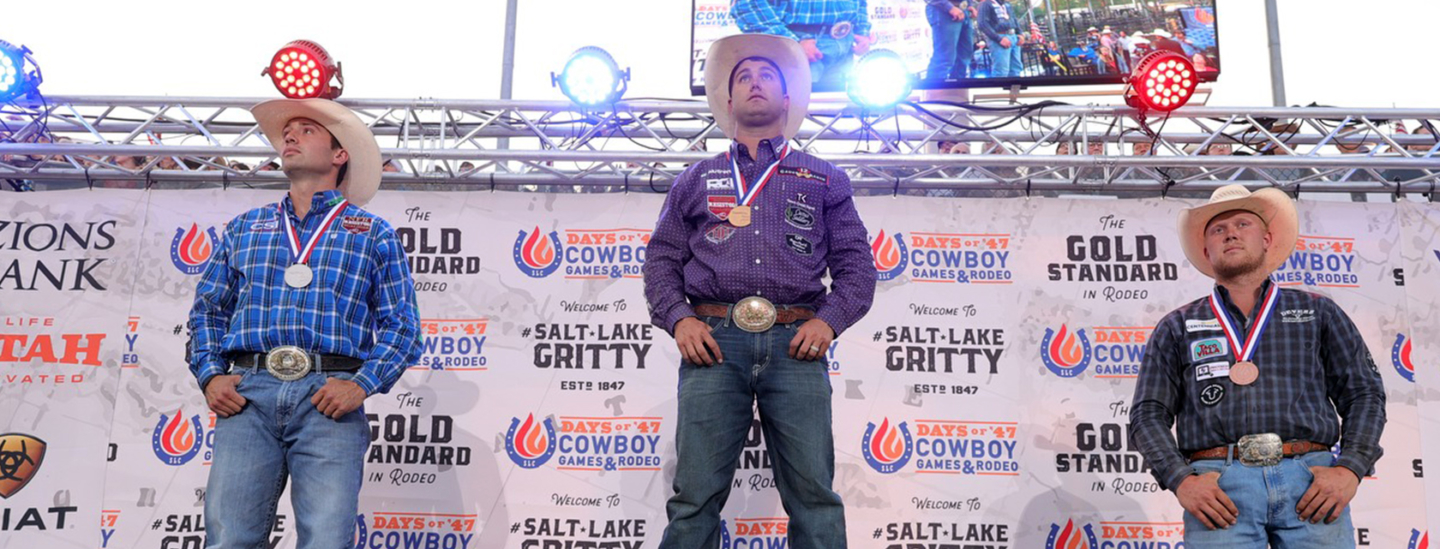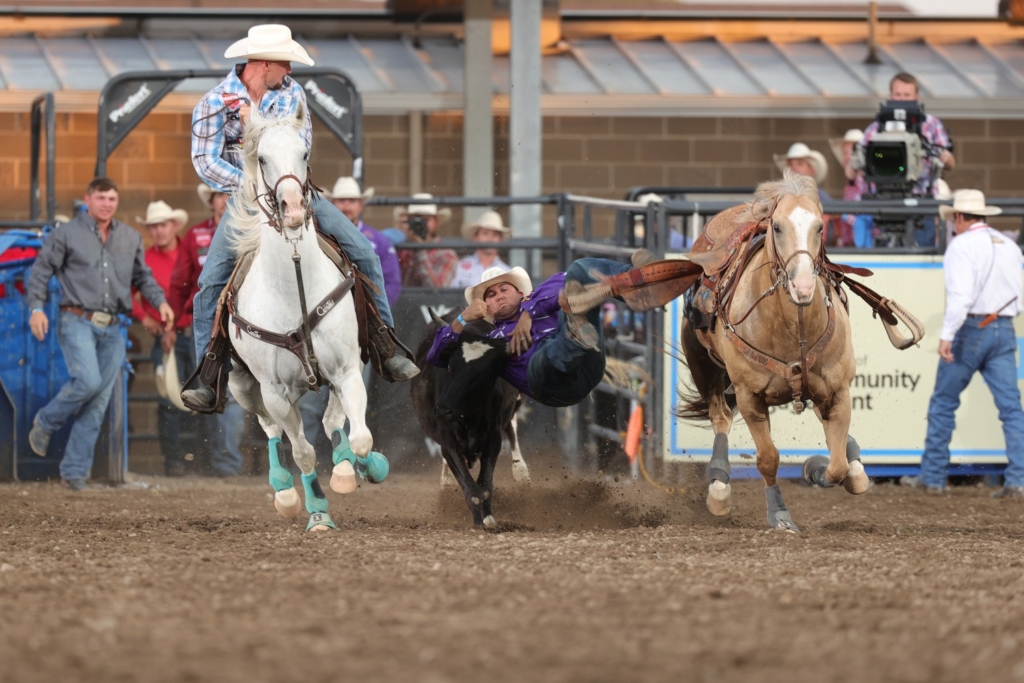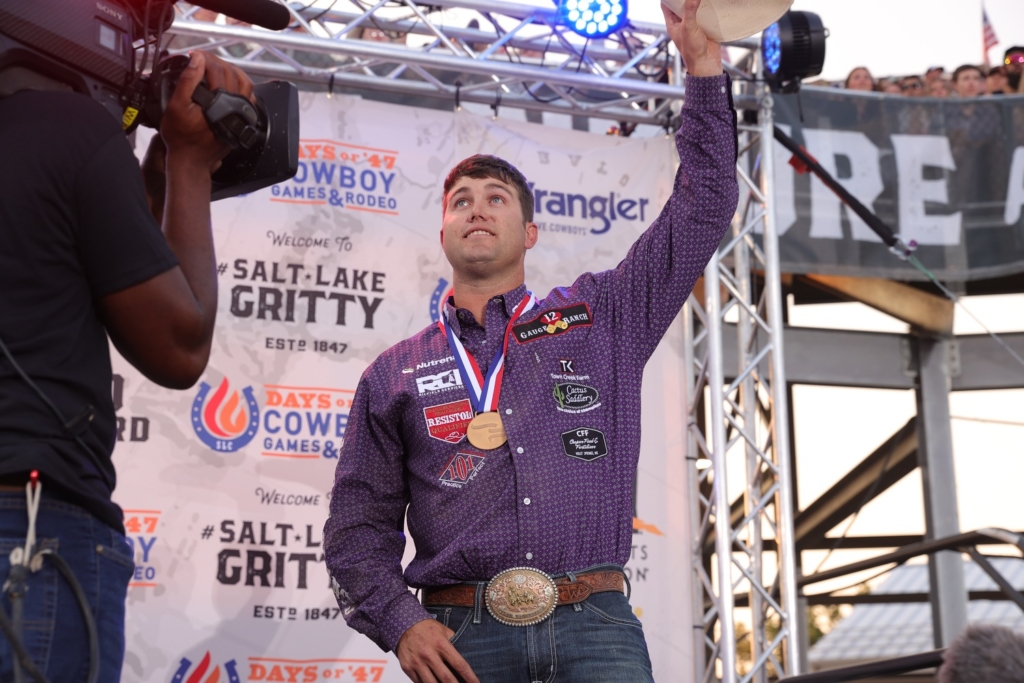
By: Kendra Santos
Things happen fast in rodeo, and as is the case in most professional sports it’s impossible to make the right call every time in real time. Enter the World Champions Rodeo Alliance’s use of instant replay. Contestants don’t throw the challenge flag often, but more than one close call was overturned over the course of the $562,500 Days of ’47 Cowboy Games & Rodeo, which ran July 20-24 and crowned its champions with gold medals and big checks in Salt Lake City Saturday night. Perhaps the most dramatic example of the impact of instant replay was the difference between money and mud for two-time World Champion Steer Wrestler and Days of ’47 Gold Medalist Tyler Waguespack.
“I’m a fan of instant replay,” said Waguespack, who calls Gonzales, Louisiana, home. “It allows the judges to get a second look at things, and get the calls right. We have some of the greatest judges in the world out there at the pro rodeos, and we trust them to make the best decisions they can. But if we were able to have instant replay, we’d have another tool for them to use to make sure they get it right.”
Waguespack ran his Salt Lake semifinals steer on Friday night, and his 4.03-second run was originally announced as 9.03, including a 5-second barrier. That penalty was the difference between advancing and leaving the rodeo empty-handed.

“When I walked back to the chute after my semifinals run, I thought there was no way I broke the barrier,” he said. “I was the last guy to go, and I had to be a mid-5 to make it back (to the finals). So I planned on missing the barrier, and just going and throwing my steer down. I never thought twice about it. When they told me I broke the barrier, I knew there was no way.
“Someone suggested I throw the (challenge) flag, so they could take another look. So I did. They were able to review it, and could tell that the barrier had pulled clean and it caught on the breast collar of the (bulldogging) horse. They were able to make the right call, and I was very fortunate for it.”
Don’t underestimate the disappointment of a cowboy who just drove all night and needs to feed his family, when something like that happens in the split-second heat of battle and the right call does not get made.

“Anywhere else, it’s, ‘Tough luck, come back next year,’ due to lack of tools,” Waguespack said. “I don’t see why you wouldn’t want to use all the tools available to make the best possible calls. The judges do the best job they can. But there’s no way to watch a run from every angle when things happen as fast as they do in our sport. Having instant replay would help the judges out, and in turn help the contestants.”
With his 3.69-second run in the finals, Waguespack skipped town with $26,600 and a gold medal. Jesse Brown of Baker City, Oregon, was 4.39 for the silver medal, and Cody Devers of Perryton, Texas, took the bronze in 4.43 seconds.
“Everybody has a chance to come here, it’s a great venue and the fans are fantastic,” said the happy champ, who rode Tyler Pearson’s palomino bulldogging horse Casper and had hazing help from Kyle Irwin and his grey horse Goose. “The atmosphere at this rodeo is tremendous.
“This is a great opportunity. I’m really grateful that they’re trying to get big venues for us like this. We’re out here doing our job and we’re hustling all the time. To be able to come to a rodeo like this—we’re making a point to be here to be able to win this type of money. We’ll go out of our way to try and make it to a venue of this magnitude every time.”


